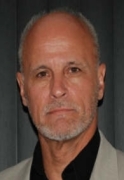WRITE LIKE IT’S YOUR CLOSING ARGUMENT
A recent ABA Journal article called to mind the similarity between writers of fiction, politicians and trial lawyers. Particularly, our susceptibility to believing in a story, when told by a master narrator, even when we may have witnessed the event giving rise to the plot or when the underlying facts about an incident are abhorrent to our political ideology. This happens in part, because we remain open to alternative accounts. In the matter of disputes giving rise to a trial, lawyers know that after observing an important event, witnesses will remember it based on its impact, and their actual and psychological point of view, all which will have gaps, which can be filled in. Many years ago, I learned that three kinds of witnesses exist: victims, actors (perpetrators) and bystanders. Each will tell a different story, not because of deceptive intent, but because they are humans, having their own interests, biases, prejudices, psychological and physical limitations. Trial lawyers capitalize on this, and arrange witnesses and the events according to logical structure and impressionistic influence (logos, pathos). In this way worn memories and recast perceptions play a vital role in shaping the case. This idea holds true for writers, and dare I say, politicians, too. Bringing together how lawyers (and by analogy, writers and politicians) make persuasive cases, even when the underlying ideology may be one-hundred degrees out of phase with one’s own, is the subject of an article in the ABA Journal (8/1/16), by Philip Myer, “What ‘Hamilton’ teaches lawyers about framing a story.”Read especially Gerry Spence’s Defense of Randy Weaver. It’s an eye opener.

